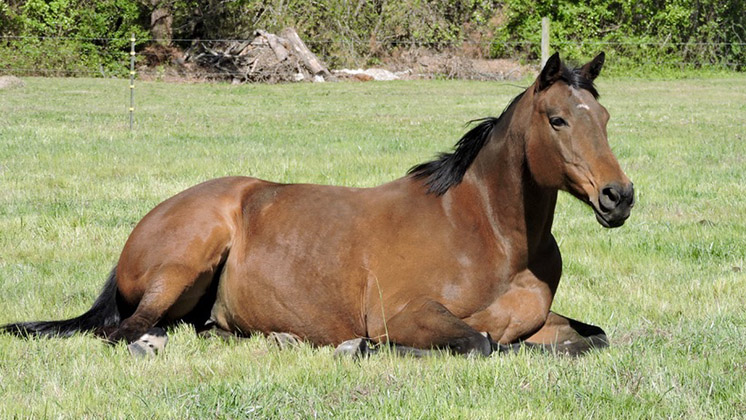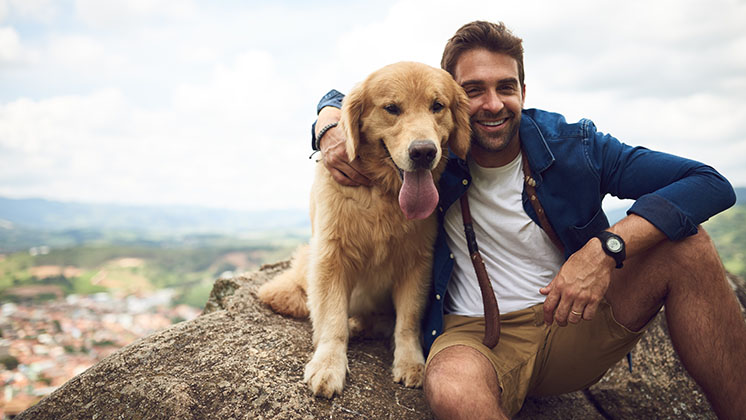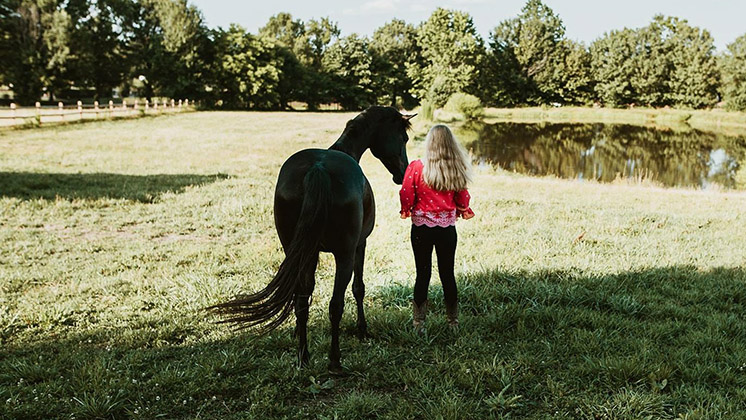Navigating Grief in Equine-Assisted Services Programs

In equine-assisted services (EAS) programs, horses aren't just animals; they are partners, friends, and, to many, family members. Their role goes beyond acting as a tool—they form strong bonds with practitioners and clients. But what happens when one of these cherished horses passes away? A recent study sheds light on this often-overlooked experience, revealing the complex emotional and practical challenges that follow such a loss.
Understanding the Emotional Impact
Practitioners in EAS programs may face emotional distress when a horse dies, akin to losing a coworker or family member. The study, which included 84 practitioners, found that these experiences can be framed using Worden's Four Tasks of Mourning:
- Accepting the Reality of the Loss: This step is particularly challenging when the death is sudden or when practitioners must make the difficult choice of euthanasia.
- Processing the Pain of Grief: Practitioners often juggle their grief while supporting others who are also affected, which can lead to "stifled grief" or burnout.
- Adjusting to a New Normal: Community support plays a key role in helping practitioners move forward, although some may face challenges such as reduced trust from clients.
- Maintaining a Connection with the Deceased: Memorials, whether simple or elaborate, help preserve the horse’s legacy and offer comfort.
Practical Takeaways
To better navigate the difficult period following a horse’s death, practitioners shared actionable insights:
- Preparation Matters: Planning logistics and having end-of-life policies can ease the process when the time comes.
- Communication is Key: Transparent, empathetic communication helps maintain trust within the community.
- Self-Care and Support: Acknowledging the emotional toll on practitioners and offering space to grieve is essential.
Conclusion
This study highlights how grieving the loss of a program horse can impact practitioners and their communities. By understanding and validating these experiences, EAS programs can build a supportive framework that respects both human and animal bonds.
Read the Research Paper
This article was based on the research of Dr. Leanne Nieforth and the HAPI lab. Read the research:
Suggested Articles

PTSD Service Dogs for Veteran Families
Discover how PTSD service dogs impact not just veterans but their families, highlighting benefits like increased activity participation alongside challenges like caregiver burden and satisfaction.
Read more
Are Service Dogs the Support Veterans with PTSD Expect?
Discover how service dogs impact U.S. military veterans with PTSD, from mental health benefits to challenges, and the gap between expectations and real-life experiences.
Read more
How Horses Help Adolescents Build Resilience
Discover the transformative power of Equine Assisted Psychotherapy (EAP), blending traditional therapy with horse-guided healing to help adolescents overcome trauma, build resilience, and foster emotional growth.
Read more
